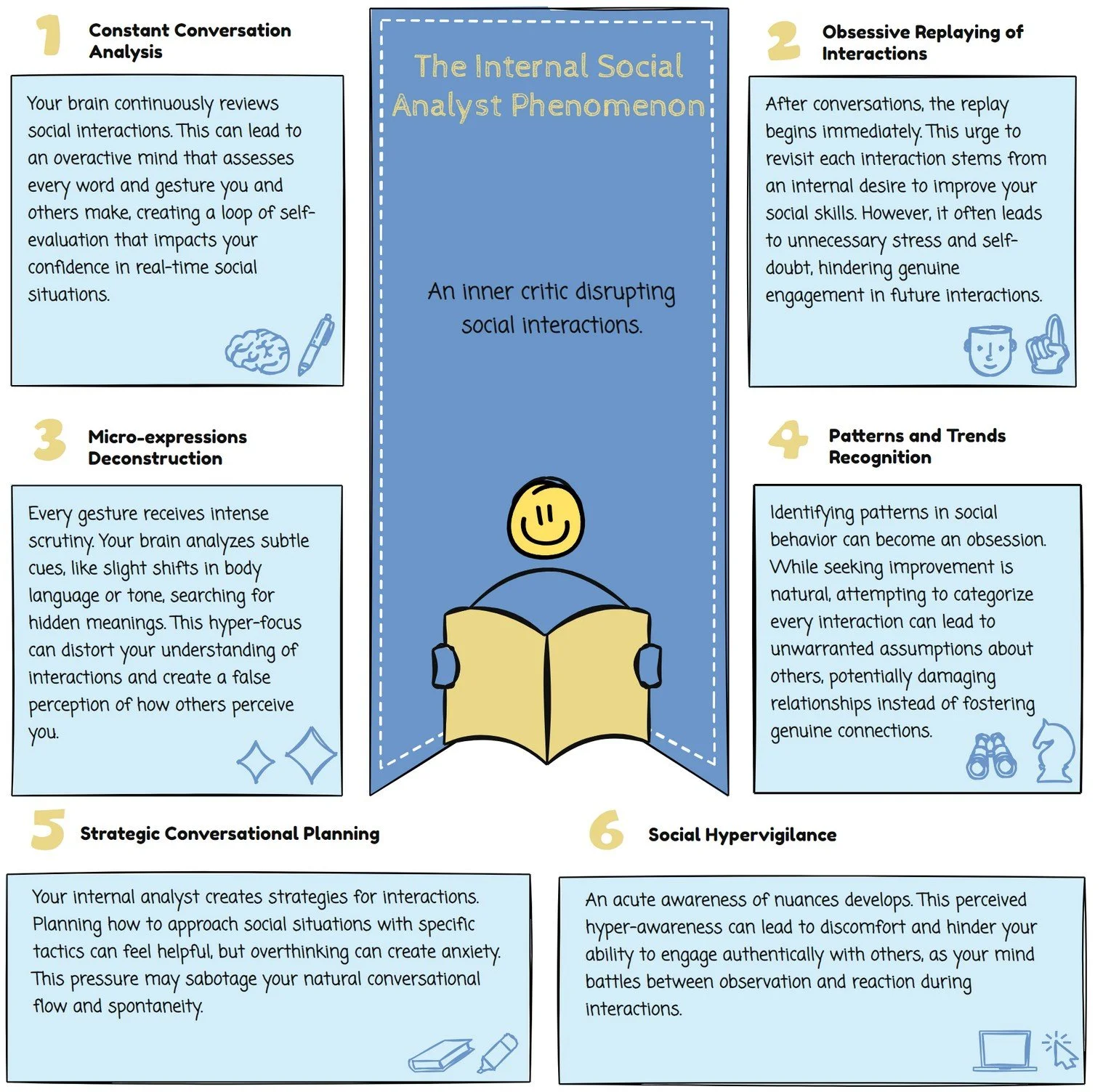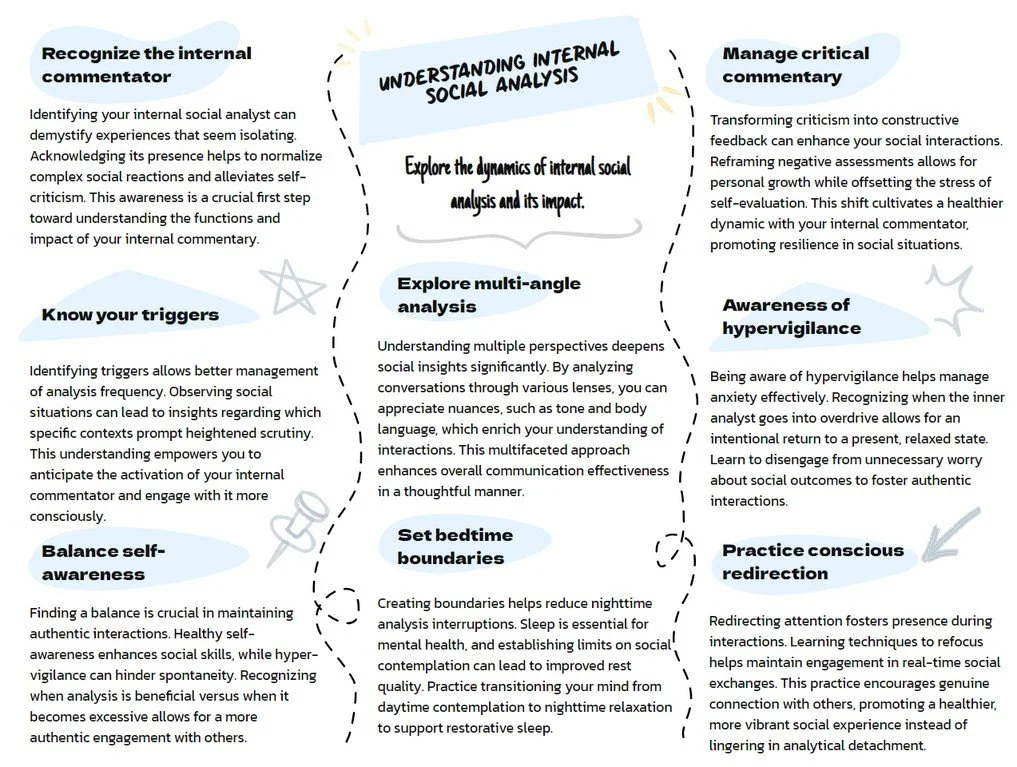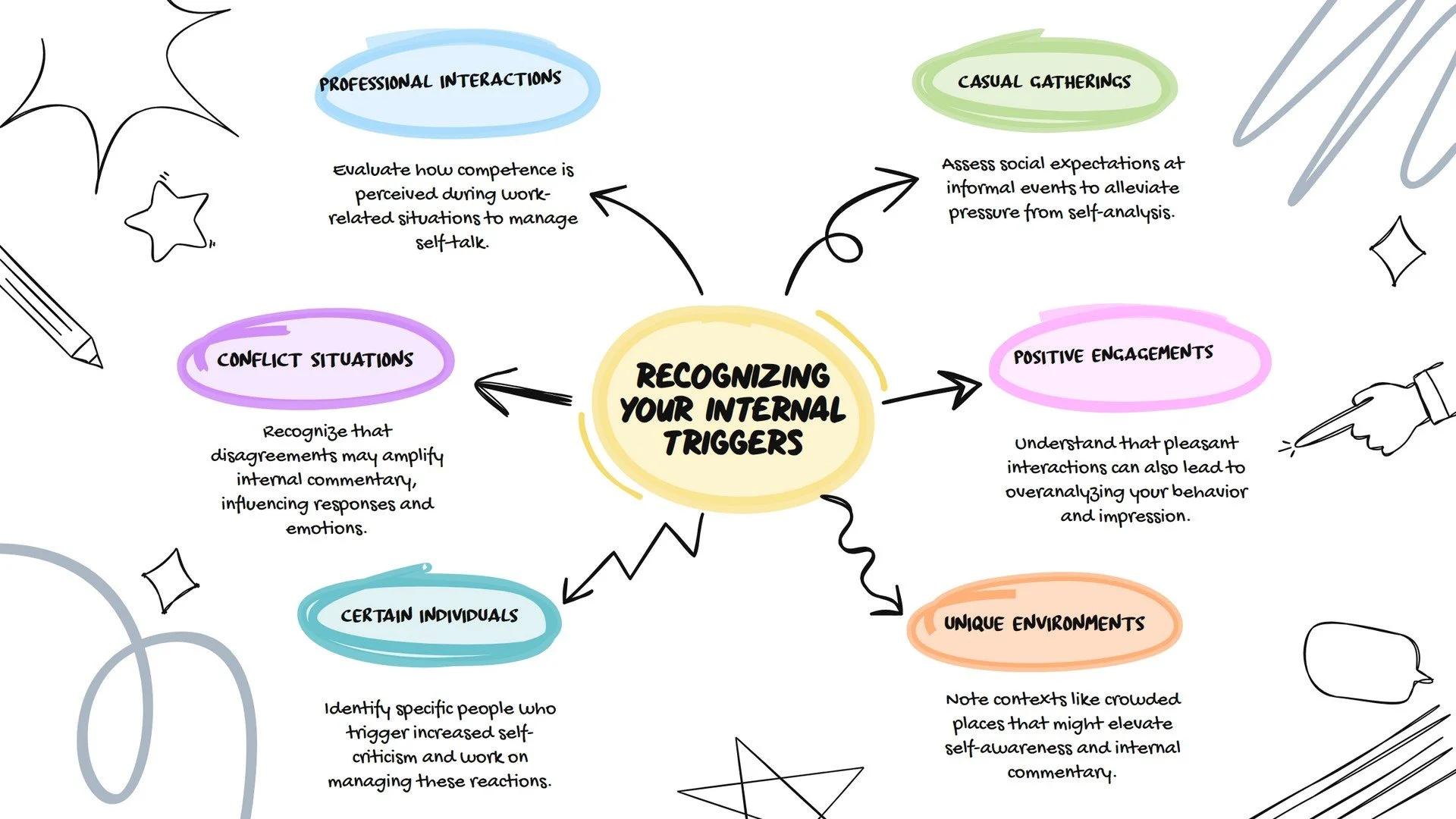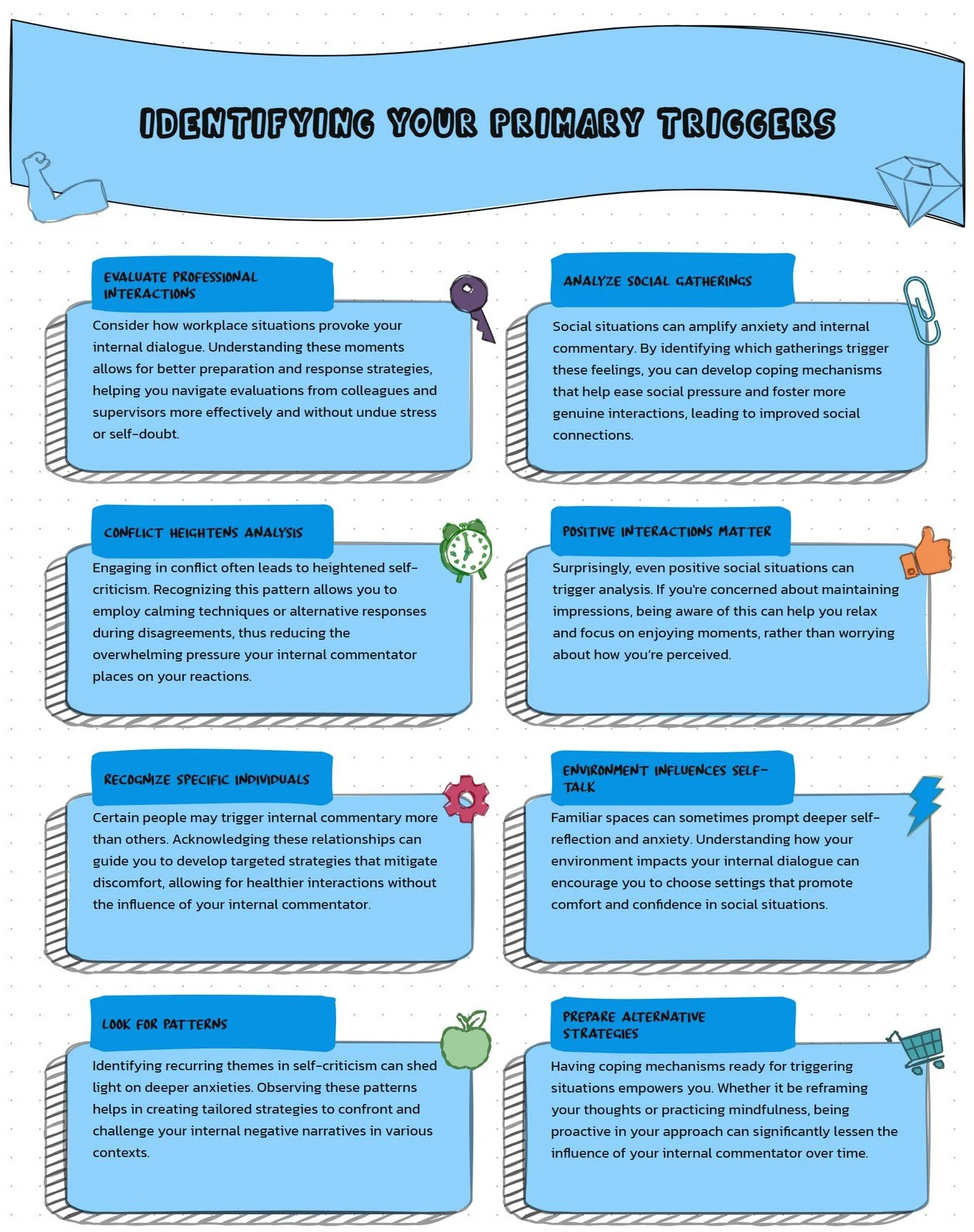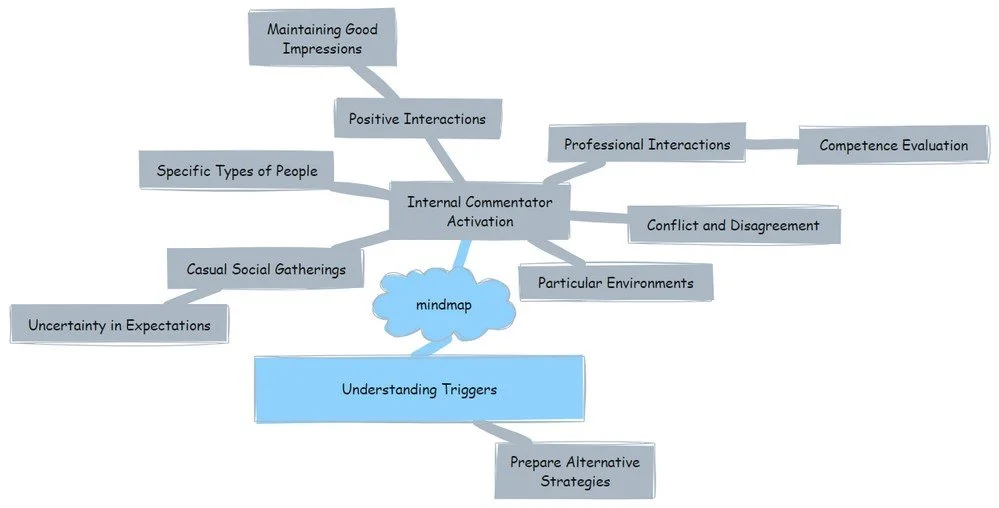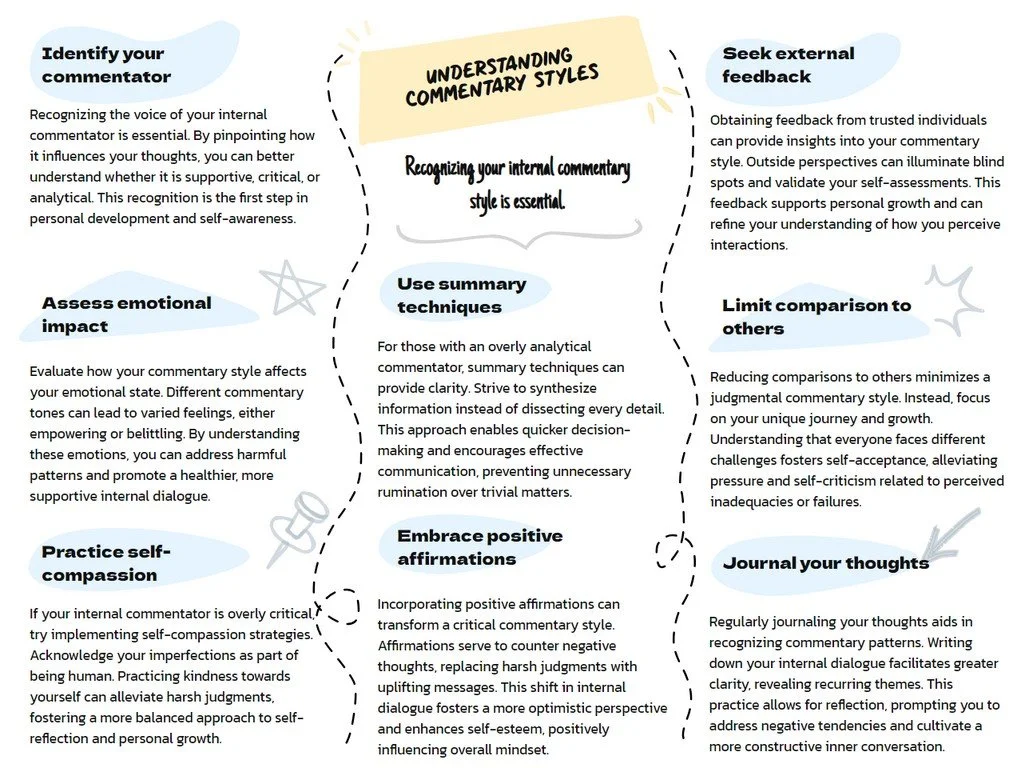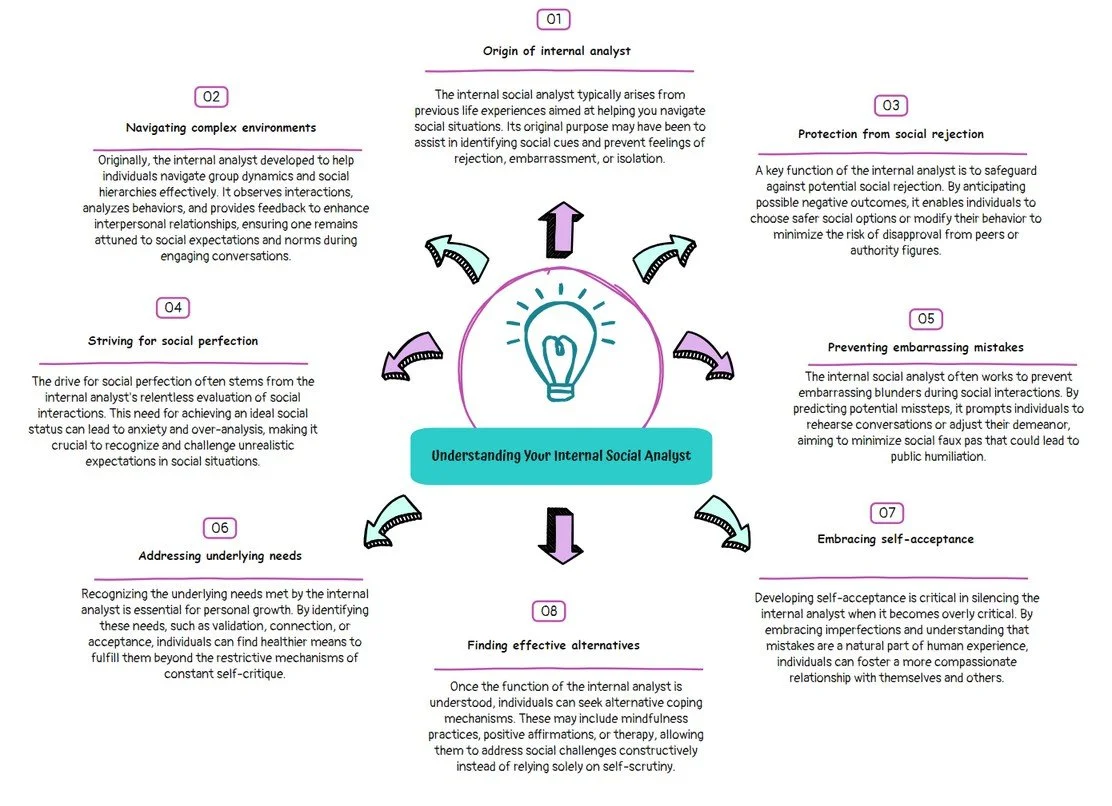
Madden in My Mind
Managing Your Mind's Commentary on Social Interactions
This workbook addresses a psychological phenomenon that millions of people experience but few have the vocabulary to articulate clearly. Your internal social analyst operates much like a television production studio that has decided to provide 24-hour coverage of your social interactions, complete with instant replay, slow-motion analysis, expert commentary, and detailed post-game breakdowns. While this mental system often believes it's helping you navigate social complexities more successfully, it frequently creates the very anxiety and self-consciousness it aims to prevent.
The metaphor of John Madden – the beloved football commentator known for his enthusiastic, detailed analysis of every play – captures something essential about this experience. Imagine if Madden never stopped commentating, if he analyzed not just football games but every conversation you had, every social gesture you made, every micro-expression you displayed. Imagine if his commentary continued long after the game ended, replaying key moments over and over while you tried to sleep. This gives you a sense of what many people experience with their internal social analyst.
The Internal Social Analyst: A Comprehensive Workbook for Understanding and Managing Your Mind's Commentary on Social Interactions
Picture this internal landscape: There's a version of John Madden living in your mind, not the jovial Hall of Fame coach who delighted television audiences with his enthusiasm for football, but rather a relentless analyst who has appointed himself the permanent commentator of your social life. This mental Madden possesses all the verbose energy and detailed scrutiny of the original, but instead of breaking down defensive formations and rushing yards, he's dissecting every conversation, every gesture, every micro-expression that occurred during your social interactions.
When you engage with someone—whether it's a casual chat with a colleague, a difficult conversation with a friend, or even just ordering coffee—this internal commentator immediately gets to work. He rewinds the interaction like game film, analyzing each moment with the same intensity Madden once brought to examining a crucial third-down play. "Now, see here," your mental Madden might say, "this is where you said 'that's interesting' but your tone went up at the end, making it sound like a question. The other person's eyebrows raised just slightly—did they think you were being sarcastic? Let's run that back again."
The mental replay begins immediately after the social interaction ends, sometimes even while it's still happening. Your internal Madden doesn't just watch the tape once; he's obsessive about it. He'll replay the same thirty-second segment of conversation dozens of times, zooming in on different details each viewing. First, he focuses on what you said and how you said it. Then he shifts to analyzing the other person's responses, their body language, the timing of their replies. He might notice how they shifted their weight when you mentioned a particular topic, or how their smile seemed to tighten imperceptibly when you made that joke.
As you try to settle into bed, this mental broadcast continues its programming. Your internal Madden has moved into slow-motion analysis mode, breaking down each interaction frame by frame. "Look at this play right here," he says, as he replays for the fifteenth time how you stumbled over your words when introducing yourself. "You can see the exact moment of confusion in their face—boom, right there. Now watch their reaction time delay by about half a second. What's that telling us about their comfort level?"
The commentary becomes increasingly detailed and sometimes increasingly critical. Your mental Madden might start identifying patterns across multiple interactions, creating elaborate theories about your social performance. He develops complex strategies for future encounters, planning out conversational plays like a coach drawing up formations on a whiteboard. "Next time, we're going to come in with more confidence on that opening greeting," he declares. "And we need to work on that tendency to overshareLook how that affected the dynamic in the fourth quarter of that conversation."
What makes this mental phenomenon particularly exhausting is that your internal Madden never seems to take a break. Unlike the real John Madden, who had scheduled broadcasts and off-seasons, your mind's version works around the clock. He's there during your commute the next morning, still analyzing yesterday's interactions. He's there during lunch, correlating today's conversations with patterns he's identified from weeks ago. This constant analysis can create a kind of social hypervigilance, where you become acutely aware of every nuance in human interaction, sometimes to the point where spontaneous, natural conversation becomes difficult because you're too busy anticipating what your internal commentator will have to say about it later.
The irony is that while this mental Madden believes he's helping you improve your social game, his constant analysis can actually interfere with your ability to be present in conversations. Instead of listening naturally and responding authentically, part of your mind is already preparing for the post-game analysis, wondering how this moment will be dissected later when you're trying to fall asleep, as the tape plays and replays in the theater of your mind.

